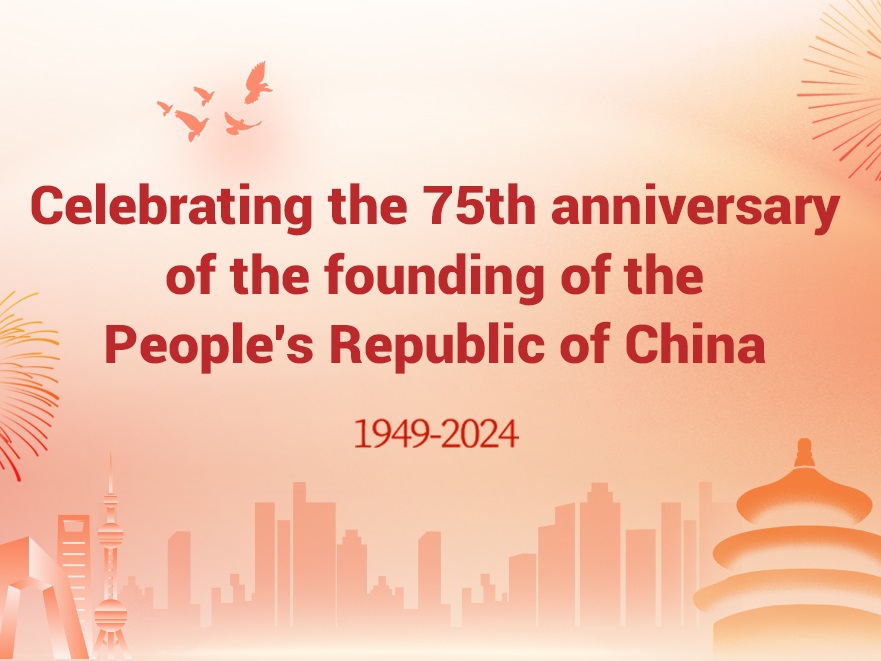Xi Focus-Closeup: In conversation with fellow delegates
A key item on the tight schedule of Xi Jinping, general secretary of the Communist Party of China (CPC) Central Committee, during the Party's five-yearly national congress is his participation in group discussions as one of the over 2,000 congress delegates.
During such a discussion earlier this week at the Guangxi Zhuang autonomous region delegation, Xi called on all Chinese people to stay united as "one piece of adamantine iron" for national rejuvenation.
The discussion was not just about grand strategies to rejuvenate China. It went into details. Conversing with the delegates from Guangxi, Xi offered his advice to a tea plantation, inquired about the ticket policy of a well-known park and wondered how much a master technician earns.
As casual as the chat may have appeared, it focused on a key aspect of the report Xi delivered to the congress -- the CPC's commitment to achieving common prosperity, an essential requirement of Chinese modernization.
Zhu Xuelan, Party chief of a Yao ethnic village, told Xi how the development of the tea industry transformed her village, which was once impoverished.
Zhu, who comes from a family of master tea-makers, has led the villagers in boosting their average annual income to more than 20,000 yuan ($2,778).
"The tea industry is very promising," Xi said, before offering his counsel. "In the next step, you will need to build your brand and make the business thrive."
Zhu's fellow villagers in Shanping were among the nearly 100 million Chinese who had been lifted out of poverty over the past decade. Under China's targeted poverty alleviation campaign, the achievement is considered a feat unparalleled in human history.
"We are fully confident in and committed to attaining common prosperity under the CPC's strong leadership," Zhu said.
Zhou Jiabin, Party chief of Guilin, home to one of the most picturesque mountains in the world, briefed Xi on the city's efforts to preserve environment while improving the people's livelihoods.
Zhou informed Xi that the city has done away with entry tickets for the iconic scenic spot Xiangbi Shan, or Elephant Trunk Hill, as part of the city's efforts to become a global tourist destination.
"Is the ticket exemption policy temporary or for the long run?" Xi asked. "It will be free for good," Zhou replied, as Xi nodded in appreciation.
"The scenic beauty of Guilin is the best in the world," Xi said, citing the catchphrase for the city. "Guilin shall thrive on its natural endowment."
The Lijiang River, which flows through the city, holds a special place in Xi's heart. He had visited the city when he was 13.
In his mind, pristine rivers and a profusion of jumping golden carp were "too good to be true," and he has always cherished the importance of nature.
Over the past decade, historic changes have taken place in ecological and environmental protection. Across the nation, people enjoy bluer skies, greener mountains, and cleaner waters.
In the report to the Party congress, Xi also said the modernization China pursues is one that boasts harmony between humanity and nature.
"We shall not only set our mind on developing the economy. Protecting the Guilin mountains and waters well would be a deed truly worthy for the country," Xi said in the group discussion.
Later, Zheng Zhiming, a fitter-turned master technician, drew Xi's attention to the manufacturing sector.
Zheng said his company, Guangxi Auto, started out by learning from Japanese car makers. Today, Japanese automobile manufacturers have started to pay attention to Guangxi Auto's products.
"This demonstrates the development and transformation of China," Xi said, expressing his delight in the progress.
Zheng, who now runs his own workshop in Guangxi Auto and helps develop machinery and train technicians for the company, is one of the grassroots delegates from the "front line of production and work," which account for more than one-third of the 2,296 elected delegates to the congress.
Displaying his curiosity about the benefits of industrial workers, Xi asked for more details about Zheng's professional life.
Zheng said without the country's favorable policies, vocational school-trained workers like him would never have the chance of becoming senior technicians.
"How is your income?" Xi went on to ask.
"Very satisfactory," replied Zheng. The quick answer drew hearty waves of laughter from fellow delegates.
While he did not reveal the figures, China's per capita disposable annual income has, overall, risen from 16,500 yuan to 35,100 yuan over the past decade. The country has over 400 million middle-income earners, the largest in the world.
China's manufacturing sector is also the largest in the world. And Xi has a particular interest in further boosting the sector.
"For China to achieve modernization, we must develop the manufacturing industry and the real economy," he said. "We must change our mindset, and nurture more industrial workers."
Monday's group discussion lasted about an hour and a half, and before it ended, Xi delivered a pep talk on China's new journey ahead.
The entire Party and all the Chinese people need to unite under the banner of the Party, and "stay committed to the common goal and work together to steer the giant ship of our great rejuvenation, braving winds and waves, toward its destination," Xi said.


